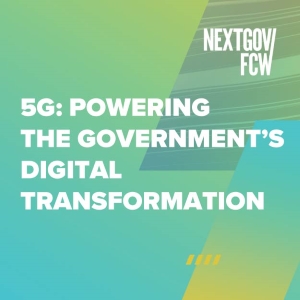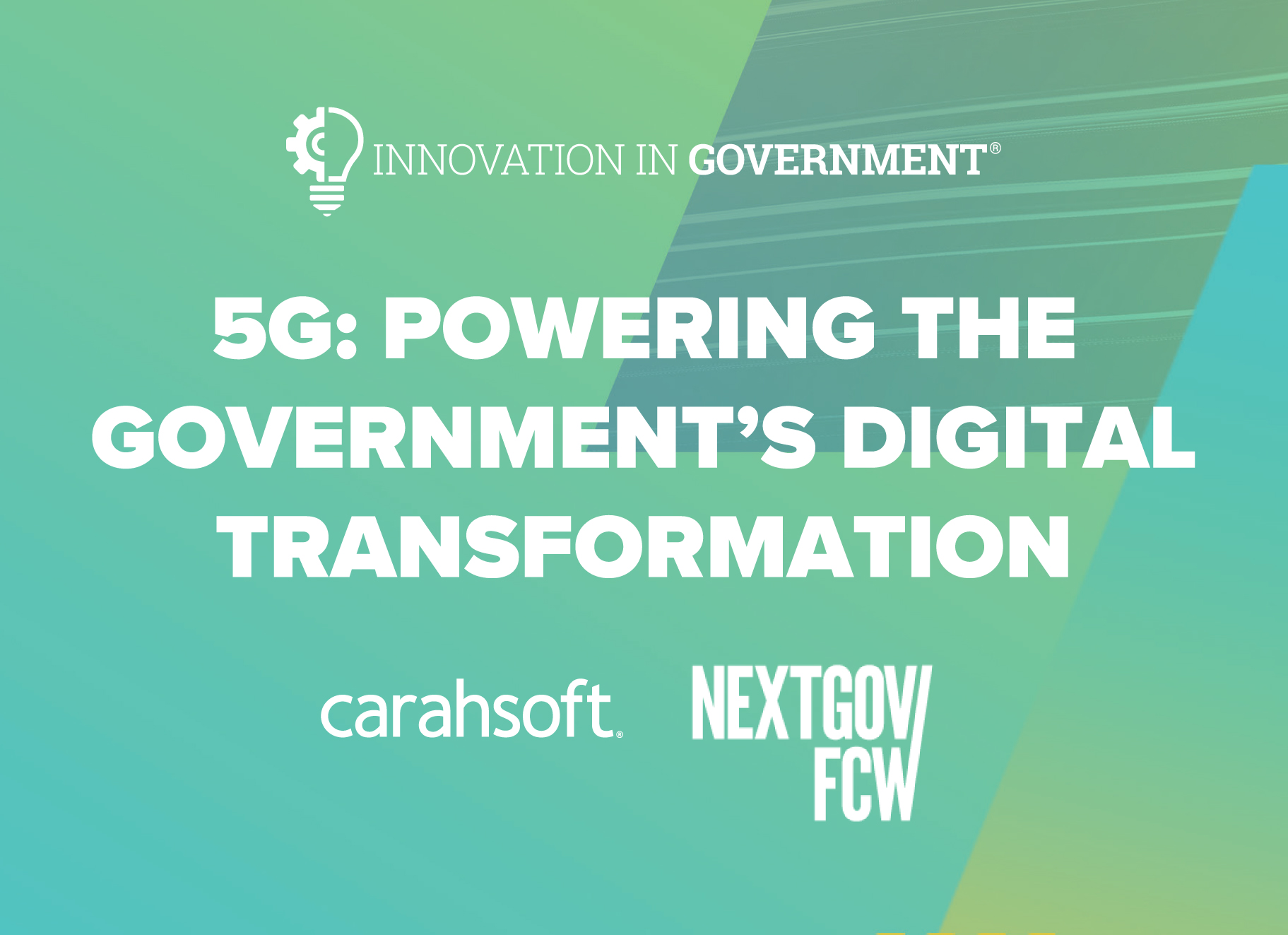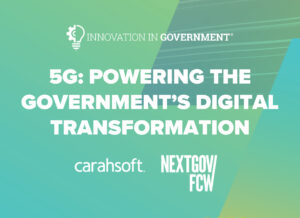5G technology has the capacity to speed data transfers and connect billions of devices at a time when mission success hinges on fast, secure access to data and people. 5G’s potential to enhance all government activities makes it an indispensable component of efforts to modernize IT systems and service delivery. Because of its low latency and capacity to carry vast amounts of data quickly and efficiently, 5G enables real-time access to information. As a result, it is facilitating the growth of smart cities, the use of artificial intelligence to improve government operations and the adoption of edge computing. The implications are profound for activities as varied as battlefield communications, military logistics and preparedness, and emergency response in situations where critical infrastructure is unavailable. Learn how government agencies can leverage all the resources in play to achieve the goal of open, interoperable and secure 5G networks Carahsoft’s Innovation in Government® report.
The Unifying Nature of 5G Technology
“5G technology is the first telecommunications standard that is cloud-native, making it critical for the government’s digital transformation. We now have a transport medium that aligns with and supports the flexibility, scalability and efficiency of cloud operating models and containerized functions and services. In addition, all aspects of a digital transformation strategy — including edge computing, artificial intelligence, cloud migration and application rationalization — center on data. With everything level-set architecturally to be cloud-native and containerized, 5G networks enable a common approach to managing data, and they also bring in a new capability for data sovereignty.”
Read more insights from Chris D. Thomas, technical strategist at Dell Technologies.
Why 5G Is Indispensable for Frontline Agencies
 “Private 5G networks have distinct benefits for government, which is why DOD has stated that it is a strategic direction for the department. At Federated Wireless, we custom-build networks for high performance, scale and unlimited capacity using best-of-breed technology from a large ecosystem of suppliers. Private wireless networks provide strong security and control over where the data resides. Unlike a traditional cellular carrier that sends data through an off-site central core, private 5G networks are secure enclaves that are governed by zero trust architectures.”
“Private 5G networks have distinct benefits for government, which is why DOD has stated that it is a strategic direction for the department. At Federated Wireless, we custom-build networks for high performance, scale and unlimited capacity using best-of-breed technology from a large ecosystem of suppliers. Private wireless networks provide strong security and control over where the data resides. Unlike a traditional cellular carrier that sends data through an off-site central core, private 5G networks are secure enclaves that are governed by zero trust architectures.”
Read more insights from Paul Battaglia, vice president of public sector at Federated Wireless.
The Key to Creating More Flexible 5G Networks
“JMA Wireless embarked on a project a couple of years ago to help bring 5G to the Marine Corps Logistics Base in Albany, GA. We were part of a team that deployed a 5G network and added applications to enable officials to modernize warehousing and logistics at the base. As a result of those improvements, the base has reduced labor costs by 61%. Additionally, it used to take three to five days for items to move from the dock to the shelf. That timeline has been slashed to about 36 minutes as the combination of the 5G network and updated application environment drives major efficiencies in logistics operations.”
Read more insights from Rishi Bhaskar, senior vice president and general manager at JMA Wireless.
Sharing Critical Information in Real Time
“The deployment of 5G for government agencies requires a security approach that is independent from the underlying transport network. For our public safety and defense customers, we offer a security architecture based on Blackned’s TacticalCORE, which provides an over-the-top multidomain security layer, enabling authentication in contested environments and separate classified information spaces across the same infrastructure. All transport is considered untrusted with the ability to implement agency-specific encryption on the 5G network. This state-of-the-art security approach has already been accredited by the German BSI as NATO-restricted and enhanced security classifications are planned.”
Read more insights from Richie Obermayer, VP of technical sales at GuardSTACK Technologies.
How Agencies Can Reap the Benefits of 5G
“5G’s reliability and availability make it possible to build dedicated wireless networks that can be sliced so mission-critical applications run in separate areas while the government maintains full control over that network. Last but certainly not least, 5G networks have carrier-grade, built-in security standards, including SIM cards that are provisioned and activated for a specific network. Users cannot connect to the network without inserting a highly secure SIM into their devices.”
Read more insights from Derrick Frost, senior vice president of operations and general manager of private wireless at Kajeet.
Private Networks and the Evolving 5G Ecosystem
“Private networks are well-suited to agency use cases for a number of reasons. First and foremost is security, which is the bedrock of every cellular network. Beyond the built-in security private 5G networks bring, they also have the capacity to add extra layers of security. The other components of a robust network include radio frequency technology and the latest 5G devices and radios. Once that foundation is in place, agencies can explore the wide range of use cases that a private 5G network can address. Deployments include standalone networks for first responders, border patrol agents and tactical response units, as well as secure, reliable networks for telemedicine providers.”
Read more insights from Derek Gallagher, CTO at Druid Software.
Download the full Innovation in Government® report for more insights from 5G thought leaders and additional industry research from FCW.







